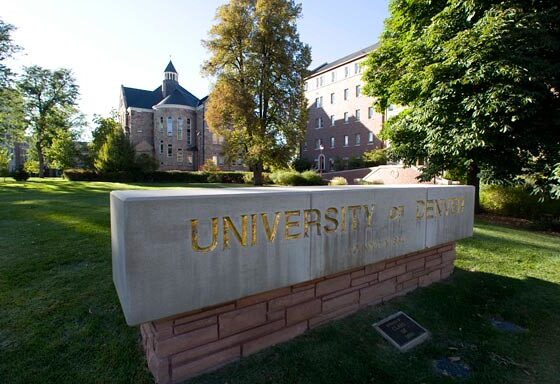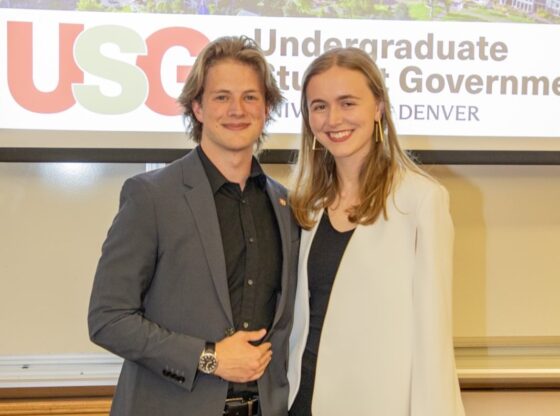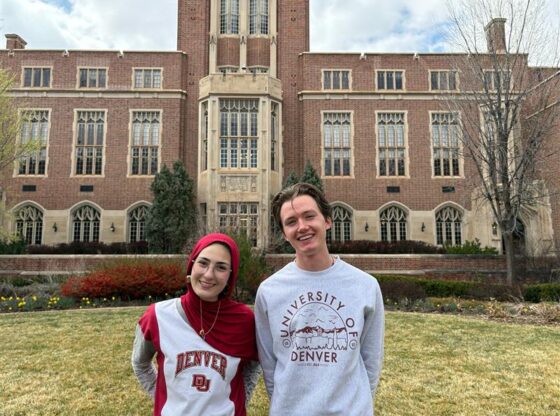Last week Sodexo Dining Services held their first of 35 “Sustainability Challenges,” week-long initiatives which are being held nationwide and focus on what students and Sodexo Dining can do to build “a better tomorrow” through sustainability and other initiatives.
Some of the components of the week included having a dietician available for students to talk to about their food choices, panels discussing local sourcing and the future of food at DU and data collection on topics such as how much waste is generated per student per meal, which will be used in a nationwide analysis of Sodexo’s practices.
Topics presented during the week included protecting the planet, fighting waste and hunger, sourcing locally, having good nutrition and supporting the local community. The topics were based on Sodexo’s “14 commitments to a better tomorrow,” which make up Sodexo’s “Better Tomorrow Plan.” The plan is a pledge from the company to maintain and improve its sustainable practices, and is being implemented in Sodexo dining locations worldwide.
According to Sodexo Marketing Manager Cameron Gates, Sodexo, a worldwide company, started putting more focus on sustainability about four years ago. The “Better Tomorrow Plan,” which came out of this new focus, incorporates three pillars: for your planet, for your community and for your health. All three of these pillars were incorporated during the challenge through activities and panel discussions throughout the week.
As part of the challenge, students were given the option of filling out and turning in challenge cards, which asked them how they planned to personally support the theme of each day of the challenge.
Students who turned in their challenge cards at the end of the week were entered to win a bike from a local bike shop.
Other initiatives included turning off half of the lights in all the dining halls throughout the week to reduce carbon emissions and focusing on creating meals with a significant percentage of locally sourced food.
Gates notes that dinner on Wednesday night was cooked with 50 percent locally sourced food campus-wide, not including soda and cereals. He says this is one of the highest percentages of local sourcing Sodexo has done on campus.
Sodexo defines “local” as being from within 150 miles of campus.
“There’s a lot of challenge that comes with local sourcing,” said Gates.“Throughout the year, all while we can, we will source local because it’s actually the same price. We have no problems getting as much local as we can, it’s just difficult to keep up with, because after November there’s nothing left besides root vegetables.”
DU’s dining website states that 19 percent of dining room food purchases are made locally.
Even with sustainable efforts in place, Gates says there are still challenges to overcome. For example, DU’s diversion rate, which is a measurement of the total amount of waste produced on campus that is successfully diverted away from landfills, is relatively low.
“Technically it’s not working too well yet,” said Gates. “We’re only technically diverting thirty percent of our waste, but we give students the opportunity to make a difference when we have three bins right in front of them. It’s just hard to get participation and respect for the system.”
Gates says other efforts currently in progress include the development of “green” kitchens, which will incorporate recycling and composting to reduce kitchen waste, train employees about the sustainable practices being utilized and distribute brochures telling students where recycling facilities are on campus for not only dining waste, but things like ink cartridges as well.











